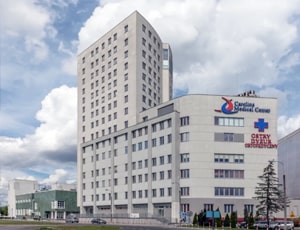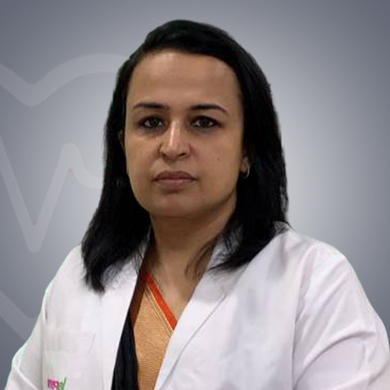Hysterectomy is a surgical procedure conducted to remove the uterus, also known as the womb. It is an organ that holds and protects the fetus during pregnancy. The hysterectomy surgery also involves removal of the other parts of the reproductive system such as ovaries (where eggs are produced), fallopian tubes (which carry the eggs to the uterus), and the cervix (neck of the uterus).
The hysterectomy surgery can be performed through the vagina (vaginal hysterectomy) or through the abdomen (abdominal hysterectomy), with or without the use of laparoscopy. After having a hysterectomy, the woman is not able to conceive.
Vaginal hysterectomy is the surgical procedure to remove the uterus (womb) through the vagina. Depending on the patient’s condition, the doctor will choose which part is to be removed by hysterectomy surgery.
There are many reasons why a doctor recommends this type of surgery. The general condition where hysterectomy is recommended are:
You should know that removal of the uterus and other reproductive organs is a serious condition and there may be several hysterectomy side effects, and it can make significant changes in your life. A vaginal hysterectomy may be contraindicated in patients with uterine cancer, big size of the uterus, and narrow vagina.
You will be asked to undergo examination for blood pressure levels, heart rate, and ECG one week before surgery to test whether you are fit for the surgery. Your doctor may recommend you not to eat or drink anything 6 hours before the surgery because you will be given general anesthesia.
If ovaries are removed during the procedure, you may have to take a few medications to replace the hormones that your body once produced on its own. So make sure you ask your doctors the reasons for recommending this procedure.
Hysterectomy term is used not only for the removal of the uterus but also for the removal of ovaries and the Fallopian tubes. Hence, it is important to discuss which part of your reproductive system will be removed during surgery.
Ask your doctor about the type and duration of pain normally associated with the surgery. Find out in advance about the pain management options.
The surgery may last for an hour.
The duration of the surgery may be approximately an hour.
The surgeon then closes the top of the vagina with stitches, staples, or glue and provides additional support for attaching the ligaments that once held the uterus in place. The incision is then closed and the drainage tube may be left inserted at the site. Finally, a sterile bandage is applied. The bandage is removed after 24 hours but if you have stitches, they will be removed after 5 to 10 days.
You may feel pain and discomfort in the groin and lower abdominal area after the surgery. Most of the times, the pain gets settled within a week or two, but sometimes hysterectomy recovery time may last a few weeks in some patients. You will be provided with pain relievers for that. You should not lift heavy objects and avoid doing strenuous work for few days after the surgery because it puts pressure on the surgical repair.
Daily activities such as heavy lifting, gardening, and lifting washing baskets or utensils should be avoided during hysterectomy recovery time. Stop smoking as it delays the wound repair and increases the risk of wound infection.
You may not have bowel movements for few days after the surgery during the hysterectomy recovery time. Therefore, you should have a proper diet to resolve the bowel. You should avoid heavy exercises for few months because it takes time to fully recover from the surgery.
You may have a vaginal discharge which is brownish or pinkish in color, but it is a normal condition. Inform the doctor immediately if the discharge is foul-smelling, bright red, and unpleasant. Be alert in using sanitary napkins or pads, because it may increase the risk of infection. Contact the doctor in case of any other hysterectomy side effects.

Kenya
Patient from Kenya underwent Myomectomy Procedure in India Read Full Story

Warsaw, Poland
History Carolina Medical Center is one of the best and clinically advanced orthopedics and sports m...more
![]() Airport Transfer
Airport Transfer
![]() Choice of Meals
Choice of Meals
![]() Interpreter
Interpreter
![]() SIM
SIM

Delhi, India
Equipped with more than 50 specialty institutes, Indraprastha Apollo was started with the vision of ...more
![]() Private Driver / Limousine Services
Private Driver / Limousine Services
![]() International Cuisine
International Cuisine
![]() Phone in Room
Phone in Room
![]() Online Doctor Consultation
Online Doctor Consultation

Marrakesh, Morocco
History Clinique Internationale Marrakech is opened to provide world-class medical services to the ...more
![]() Airport Transfer
Airport Transfer
![]() Choice of Meals
Choice of Meals
![]() SIM
SIM
![]() TV inside room
TV inside room

Infertility & Laproscopy & Gynecologist
Delhi, India
18 Years of experience
USD 35 for video consultation

Gynaecologist
Dubai, U.A.E.
25 Years of experience
USD 150 for video consultation

Infertility & Laproscopy & Gynecologist
Delhi, India
38 Years of experience
USD 50 for video consultation

Gynecologist
Istanbul, Turkey
27 Years of experience
USD 200 for video consultation
Q. Which type of foods I should take after the surgery?
A. You should take a balanced diet to receive all the nutrients your body wants. Take fiber-rich food and nearly 2 to 2.5 liters of fluids to keep your bowels regular.
Q. When can I go to the office after the surgery?
A. It depends on the type of work you do. Most of the patients require two to six weeks off work.
Q. How long will it take to recover completely after the surgery?
A. It depends on the type of surgery you undergo. Usually, it takes two to three weeks to recover completely.
Q. When can I go back to work after the surgery?
A. You can start going to office after four to six weeks of the surgery.
Q. When can I return to my sexual life after surgery?
A. You can have sex after four weeks.
Q. Do all women have the same risk of developing complications?
A. No. some women may be at a greater risk of complications than others. It depends on the underlying health conditions. Some may develop anaesthesia-related complications also if they are habituated to smoking or drinking.
Q. What happens if the ovaries are removed?
A. Removal of the ovaries can cause symptoms of menopause such as hot flashes, vaginal dryness, and sleep problems. However, you will be recommended medications to relieve the symptoms.
Q. Will I experience any emotional changes after the surgery?
A. You may feel depressed after the surgery, but it lasts for only a few weeks. If you find that depression lasts for several weeks, then you should meet your doctor immediately.